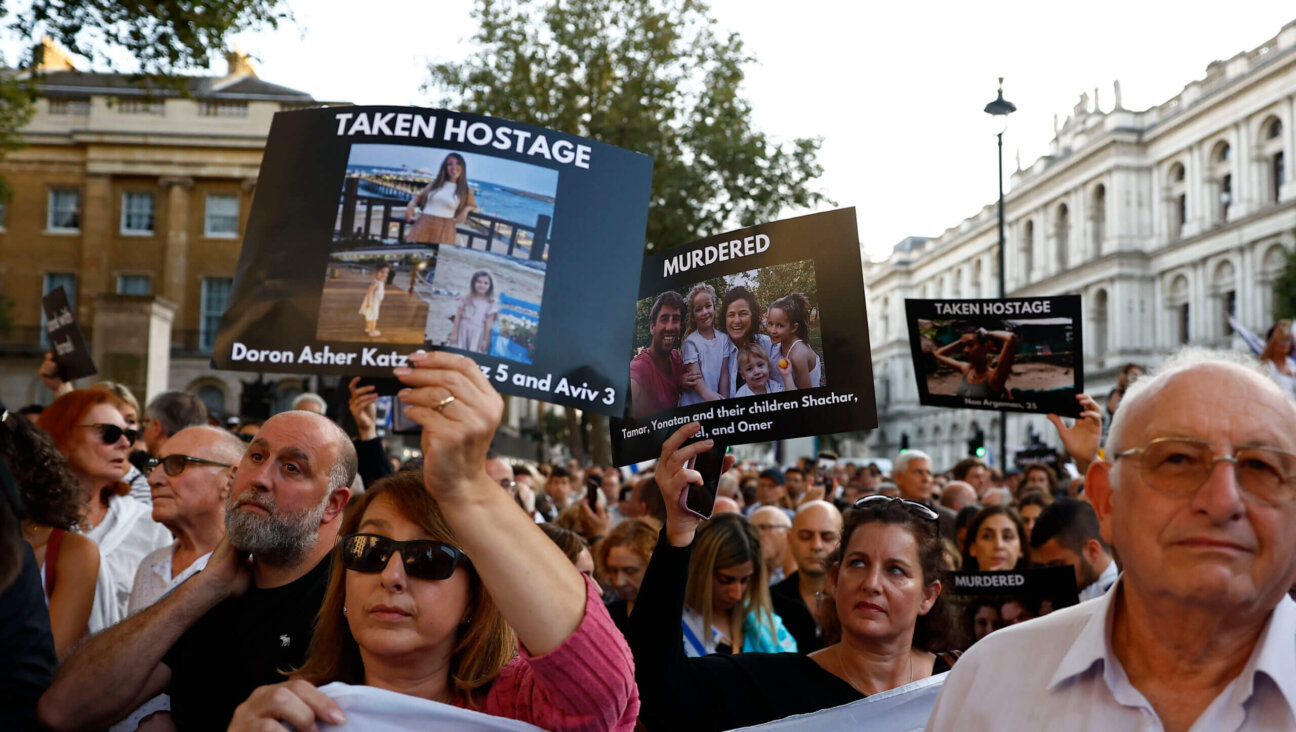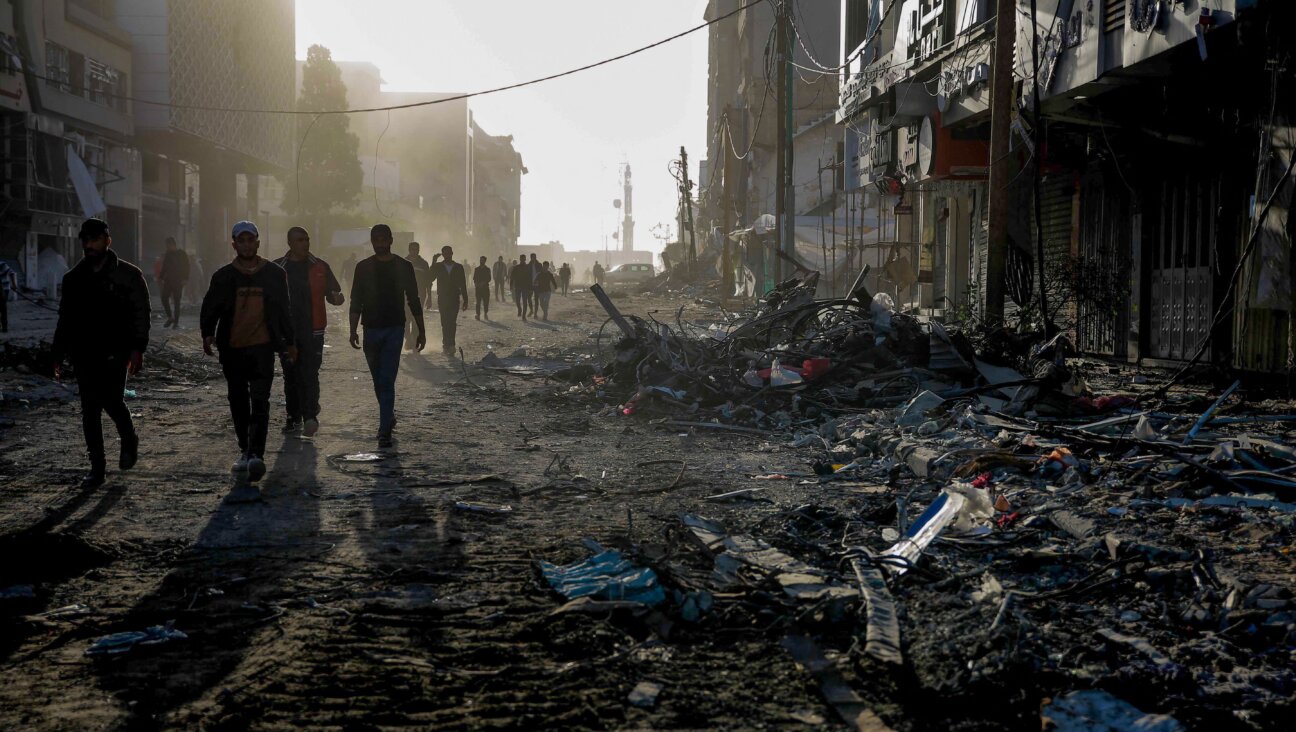Geneva Agreement Repeats Oslo’s Mistakes
The Geneva Understandings, the agreement reached recently among a group of dovish Israeli politicians and Palestinians, repeat the mistakes of the 1993 Oslo accord by requiring Israel to make dangerous concessions in exchange for unverifiable Palestinian promises.
But the Geneva agreement is even worse than the previous peace initiative, because it comes after 10 years of constant Palestinian violations of the Oslo accords, violations which prove unequivocally that they have no interest in peace. No wonder former Labor prime minister Ehud Barak has denounced the Geneva Understandings as “delusional.”
The understandings require that Israel withdraw to the indefensible pre-1967 borders, which the late Abba Eban, one of Israel’s most outspoken doves, called “Auschwitz lines.” The Jewish state would be reduced to nine miles wide at its midsection — approximately the width of Washington, D.C. Furthermore, only tiny modifications of the border would be allowed, and even then Israel would have to give the Palestinian Authority an equal amount of territory from within the pre-1967 areas.
The authors of the agreement argue for the immediate creation of a sovereign Palestinian state in the West Bank and Gaza. Will that satisfy Palestinian aspirations and convince them to make peace with Israel? Unlikely. Syria, Iran and North Korea are sovereign states, and that hasn’t made them peaceful.
Giving the Palestinians sovereignty means strengthening their ability to shelter terrorists. Israel’s major population centers — Jerusalem, Tel Aviv and Haifa — will be within easy striking distance of Palestinian terrorists, who could blow up an Israeli bus and then, within minutes, reach the safety of sovereign Palestine. If Israel chases the terrorists across the border it would violate another country’s sovereignty, triggering international condemnations and perhaps even sanctions.
Another flaw of the Geneva agreement is its one-sided approach to the question of timetables. There is a timetable for Israeli withdrawals, but no reference to any timetable for the Palestinian Authority to disband terrorist groups — which it calls “irregular forces or armed bands” — and no reference whatsoever to confiscating the tens of thousands of illegal weapons in the hands of terrorists. The process could drag on for years, even decades, while terrorists murder Jews and the government of Palestine insists it is “doing its best” to find the weapons.
The Geneva Understandings would divide Jerusalem. The eastern part of the city would become the capitol of Palestine. For 2,000 years, Jews prayed, dreamed and longed for the return of Jerusalem to Jewish hands. The Geneva agreement would tear Jerusalem apart and hand half of it to Yasser Arafat.
The understandings leave open the door to the Palestinians’ “right of return” to the State of Israel. It allows refugees to choose among five options, one of which is settling in Israel. Israel can limit the number it takes, but the Israelis are required to “take into account the average number taken in by the third countries.” Significantly, P.A. Foreign Minister Nabil Sha’ath last week branded as “unacceptable” a recent European proposal limiting the right of return to the boundaries of a Palestinian state.
The Geneva Understandings state that “Palestine shall be a non-militarized state with a strong security force.” The final decision as to what weapons it will be allowed to have would be in the hands of an International Verification Group. Inevitably the group’s members will include parties that have been consistently unfriendly to Israel and sympathetic to the Palestinians, such as the European Union, United Nations, Russia and the State Department — which for the last 10 years has regularly whitewashed P.A. violations of Oslo.
We would do well to remember what Henry Kissinger wrote to President Richard Nixon in 1970, concerning Egypt’s violations of a cease-fire agreement with Israel: “We have an incentive to minimize such evidence, since the consequences of finding violations are so unpleasant [and] risk the blowup of our initiative…. Accordingly, we tend to lean over backwards to avoid the conclusion that the Arabs are violating the cease-fire.”
The International Verification Group is, according to the agreement, to be dissolved after five years. At that point Israel, reduced to its narrow 1967 borders and straddled by a sovereign Palestine state, will have to trust the Palestinians to be peaceful — the same Palestinians who have spent the last three years slaughtering nearly 1,000 Jews and raising an entire generation to hate Jews and glorify mass murder.
What impact will the Geneva Understandings have on Israel?
The Geneva Understandings will weaken Israel’s negotiating position. When prominent Israelis press the Israeli government to make more concessions, it sends a message to the Arabs that if they hold out longer, they will be able to extract more land and other concessions from Israel.
Whatever one’s view of how to resolve issues such as borders, we should all be able to agree that undermining Israel’s negotiating position, especially in the midst of a war, is simply wrong.
Morton Klein is national president of the Zionist Organization of America.
A message from our Publisher & CEO Rachel Fishman Feddersen

I hope you appreciated this article. Before you go, I’d like to ask you to please support the Forward’s award-winning, nonprofit journalism during this critical time.
We’ve set a goal to raise $260,000 by December 31. That’s an ambitious goal, but one that will give us the resources we need to invest in the high quality news, opinion, analysis and cultural coverage that isn’t available anywhere else.
If you feel inspired to make an impact, now is the time to give something back. Join us as a member at your most generous level.
— Rachel Fishman Feddersen, Publisher and CEO
























